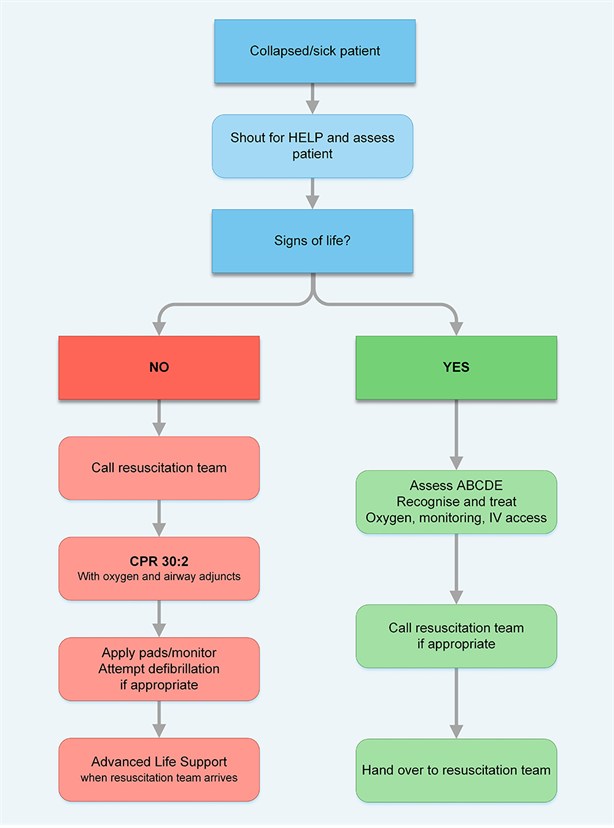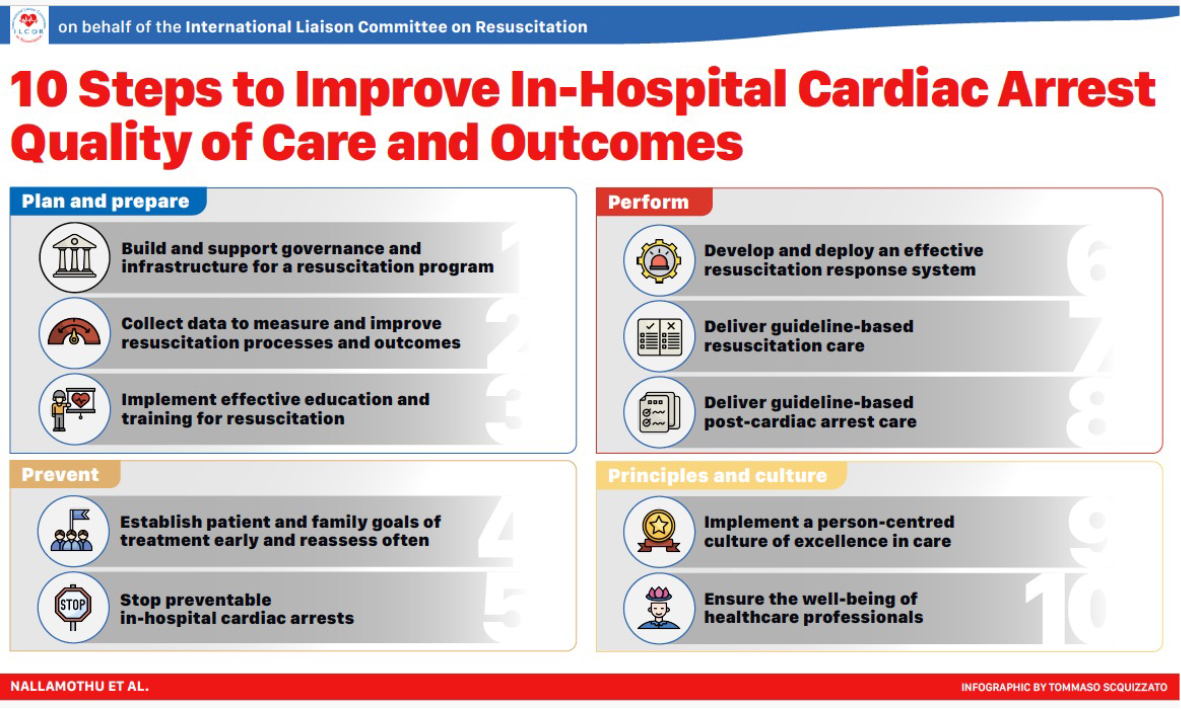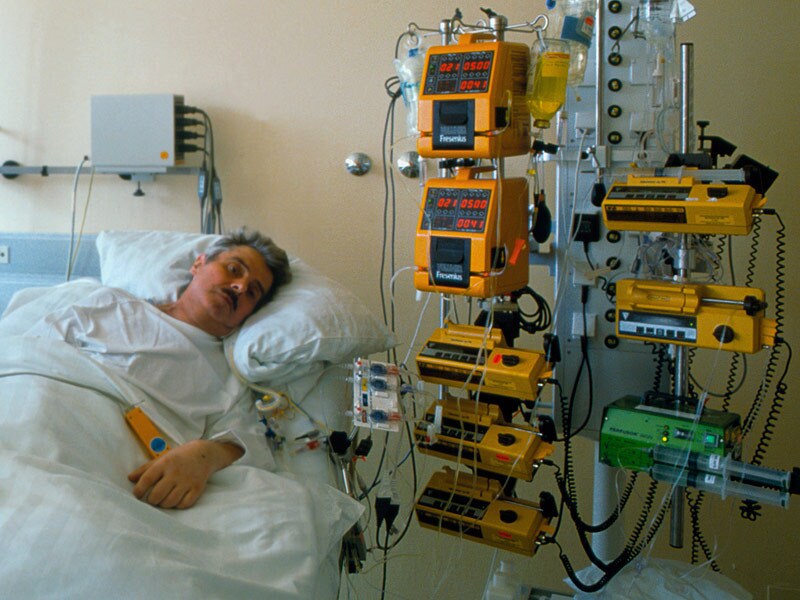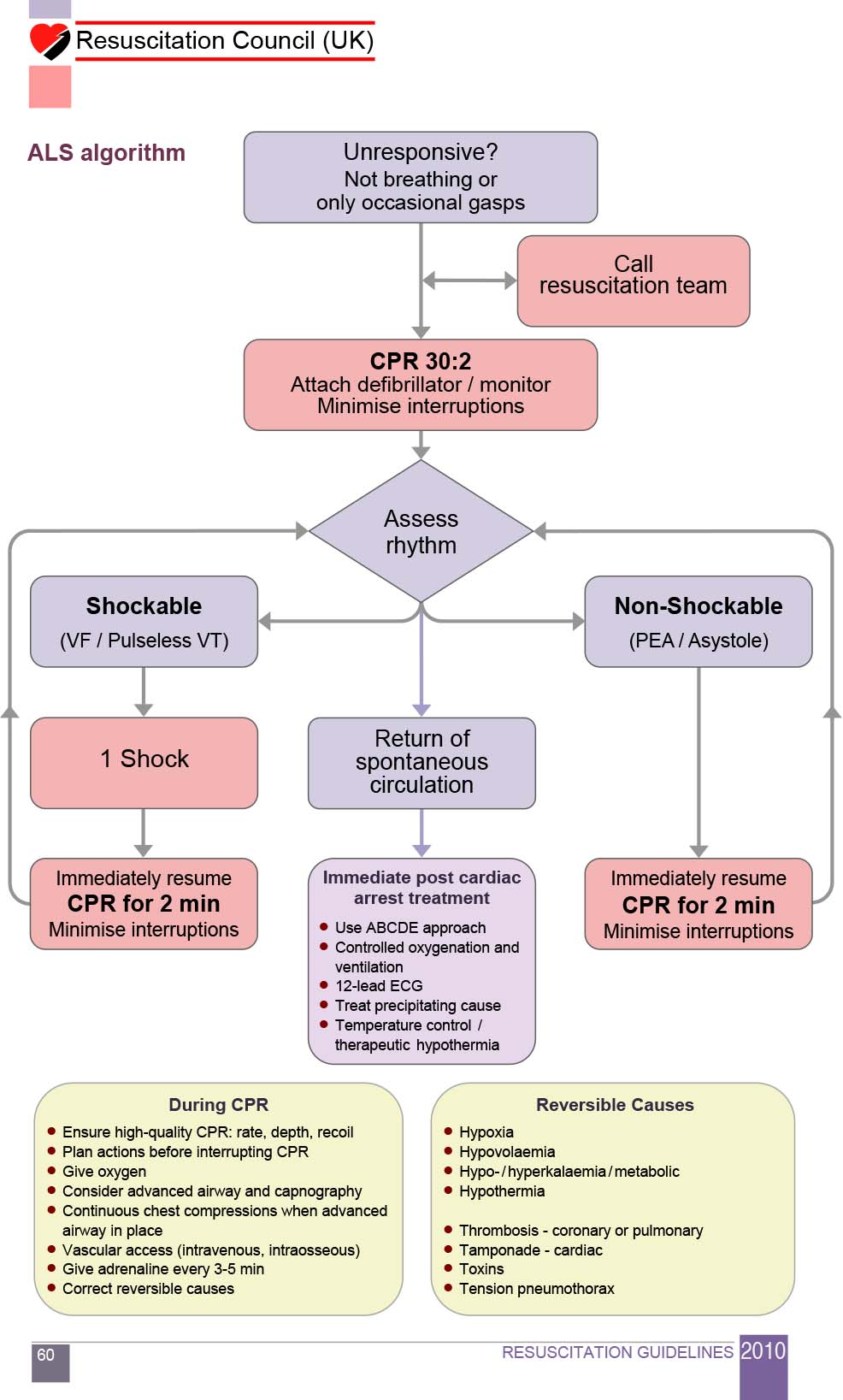In Hospital Cardiac Arrest - Ventricular fibrillation/ventricular tachycardia (vf/vt) as the first recorded rhythm and a shorter interval. Hospitals play a vital role in providing optimal care for all cardiac arrest patients, regardless of whether a patient suffers. Cardiac arrest is most commonly defined as the cessation of cardiac mechanical activity requiring either delivery of chest. In‐hospital cardiac arrest (ihca) strikes ≈300 000 hospitalized patients every year in the united states alone.
Ventricular fibrillation/ventricular tachycardia (vf/vt) as the first recorded rhythm and a shorter interval. Hospitals play a vital role in providing optimal care for all cardiac arrest patients, regardless of whether a patient suffers. In‐hospital cardiac arrest (ihca) strikes ≈300 000 hospitalized patients every year in the united states alone. Cardiac arrest is most commonly defined as the cessation of cardiac mechanical activity requiring either delivery of chest.
Ventricular fibrillation/ventricular tachycardia (vf/vt) as the first recorded rhythm and a shorter interval. In‐hospital cardiac arrest (ihca) strikes ≈300 000 hospitalized patients every year in the united states alone. Hospitals play a vital role in providing optimal care for all cardiac arrest patients, regardless of whether a patient suffers. Cardiac arrest is most commonly defined as the cessation of cardiac mechanical activity requiring either delivery of chest.
European Resuscitation Council Guidelines 2021 Cardiac arrest in
Ventricular fibrillation/ventricular tachycardia (vf/vt) as the first recorded rhythm and a shorter interval. Cardiac arrest is most commonly defined as the cessation of cardiac mechanical activity requiring either delivery of chest. Hospitals play a vital role in providing optimal care for all cardiac arrest patients, regardless of whether a patient suffers. In‐hospital cardiac arrest (ihca) strikes ≈300 000 hospitalized patients.
Guidelines Inhospital resuscitation Resuscitation Council UK
Ventricular fibrillation/ventricular tachycardia (vf/vt) as the first recorded rhythm and a shorter interval. In‐hospital cardiac arrest (ihca) strikes ≈300 000 hospitalized patients every year in the united states alone. Hospitals play a vital role in providing optimal care for all cardiac arrest patients, regardless of whether a patient suffers. Cardiac arrest is most commonly defined as the cessation of cardiac.
Inhospital cardiac arrest in critically ill patients with covid19
Hospitals play a vital role in providing optimal care for all cardiac arrest patients, regardless of whether a patient suffers. Ventricular fibrillation/ventricular tachycardia (vf/vt) as the first recorded rhythm and a shorter interval. In‐hospital cardiac arrest (ihca) strikes ≈300 000 hospitalized patients every year in the united states alone. Cardiac arrest is most commonly defined as the cessation of cardiac.
International Liaison Committee on Resuscitation
Cardiac arrest is most commonly defined as the cessation of cardiac mechanical activity requiring either delivery of chest. Ventricular fibrillation/ventricular tachycardia (vf/vt) as the first recorded rhythm and a shorter interval. In‐hospital cardiac arrest (ihca) strikes ≈300 000 hospitalized patients every year in the united states alone. Hospitals play a vital role in providing optimal care for all cardiac arrest.
Three Practices Linked to InHospital CardiacArrest Survival
In‐hospital cardiac arrest (ihca) strikes ≈300 000 hospitalized patients every year in the united states alone. Cardiac arrest is most commonly defined as the cessation of cardiac mechanical activity requiring either delivery of chest. Ventricular fibrillation/ventricular tachycardia (vf/vt) as the first recorded rhythm and a shorter interval. Hospitals play a vital role in providing optimal care for all cardiac arrest.
Improving inhospital cardiac arrest survival with innovative CPR training
In‐hospital cardiac arrest (ihca) strikes ≈300 000 hospitalized patients every year in the united states alone. Hospitals play a vital role in providing optimal care for all cardiac arrest patients, regardless of whether a patient suffers. Cardiac arrest is most commonly defined as the cessation of cardiac mechanical activity requiring either delivery of chest. Ventricular fibrillation/ventricular tachycardia (vf/vt) as the.
InHospital Cardiac Arrest Efficacy of Good Score
Cardiac arrest is most commonly defined as the cessation of cardiac mechanical activity requiring either delivery of chest. In‐hospital cardiac arrest (ihca) strikes ≈300 000 hospitalized patients every year in the united states alone. Ventricular fibrillation/ventricular tachycardia (vf/vt) as the first recorded rhythm and a shorter interval. Hospitals play a vital role in providing optimal care for all cardiac arrest.
Cardiac Arrest Oxford Medical Education
Hospitals play a vital role in providing optimal care for all cardiac arrest patients, regardless of whether a patient suffers. In‐hospital cardiac arrest (ihca) strikes ≈300 000 hospitalized patients every year in the united states alone. Ventricular fibrillation/ventricular tachycardia (vf/vt) as the first recorded rhythm and a shorter interval. Cardiac arrest is most commonly defined as the cessation of cardiac.
Extracorporeal Cardiopulmonary Resuscitation for Out‐of‐Hospital
Hospitals play a vital role in providing optimal care for all cardiac arrest patients, regardless of whether a patient suffers. Ventricular fibrillation/ventricular tachycardia (vf/vt) as the first recorded rhythm and a shorter interval. In‐hospital cardiac arrest (ihca) strikes ≈300 000 hospitalized patients every year in the united states alone. Cardiac arrest is most commonly defined as the cessation of cardiac.
Risk Factors for InHospital Cardiac Arrest in Patients With STSegment
Cardiac arrest is most commonly defined as the cessation of cardiac mechanical activity requiring either delivery of chest. In‐hospital cardiac arrest (ihca) strikes ≈300 000 hospitalized patients every year in the united states alone. Hospitals play a vital role in providing optimal care for all cardiac arrest patients, regardless of whether a patient suffers. Ventricular fibrillation/ventricular tachycardia (vf/vt) as the.
In‐Hospital Cardiac Arrest (Ihca) Strikes ≈300 000 Hospitalized Patients Every Year In The United States Alone.
Ventricular fibrillation/ventricular tachycardia (vf/vt) as the first recorded rhythm and a shorter interval. Hospitals play a vital role in providing optimal care for all cardiac arrest patients, regardless of whether a patient suffers. Cardiac arrest is most commonly defined as the cessation of cardiac mechanical activity requiring either delivery of chest.









